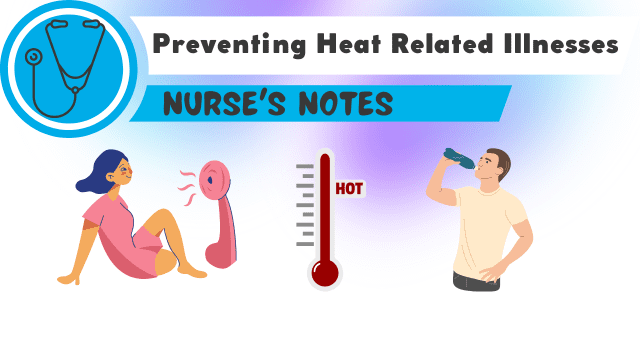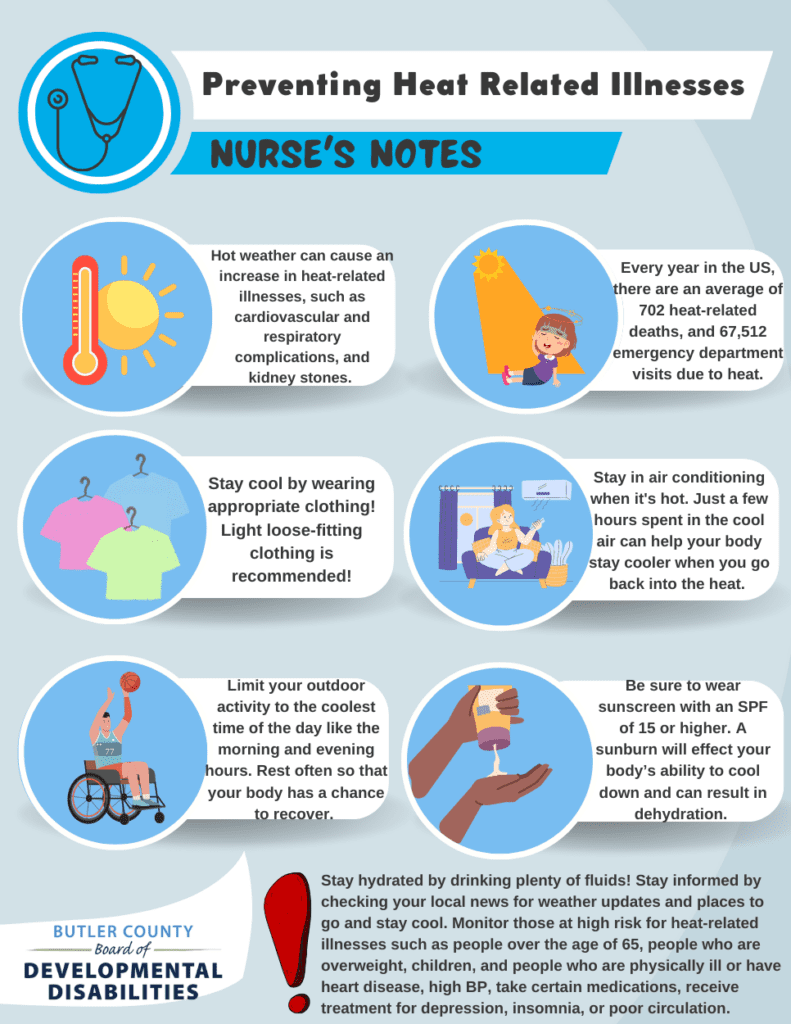
Nurse’s Notes: Preventing Heat Related Illnesses
Every month, our staff nurses share important health updates. This month, our nurses are giving out hot weather tips and talking about how prevent to heat-related illnesses.
Hot weather is associated with an increase in heat-related illnesses, including cardiovascular and respiratory complications, renal failure, electrolyte imbalance, kidney stones, negative impacts on fetal health, and preterm birth. Deaths result from heat stroke and related conditions, cardiovascular disease, respiratory disease, and cerebrovascular disease.
On average each year in the United States, there are 702 heat-related deaths, 67,512 emergency department visits, and 9,235 people hospitalized due to heat.
Stay Cool This Summer by Using the Following hot Weather tips:
- Wear appropriate clothing. Loose fitting or light clothing works best!
- Stay indoors with the air conditioning on when it is hot. If your home does not have air conditioning, go to your local library or shopping center for a few hours. Just a few hours spent in the cool air can help your body stay cooler when you go back into the heat.
- Schedule outdoor activities carefully. Perform outdoor activities during the coolest times of the day, which is often the morning and evening hours. Rest often so that your body has a chance to recover.
- Wear Sunscreen. A sunburn will affect your body’s ability to cool down and can result in dehydration. Be sure to protect yourself from the sun by wearing a wide-brimmed hat, sunglasses, and sunscreen with a SPF of 15 or higher.
- Do not leave children, elderly, or disabled adults in vehicles.
- Avoid hot and heavy meals as they will heat up your body.
Hydration is key!
Drink plenty of fluids especially when in the heat. Do not wait until you are thirsty to drink. If you are on a fluid restricted diet or take medications that might increase urination, ask your physician about water intake while the weather is hot. Try to avoid alcohol and drinks that contain a lot of sugar as those drinks cause you to lose more body fluid. Don’t forget to provide your pets with plenty of fresh water during hot days!
Stay Informed!
Check your local news for weather updates, extreme heat alerts and safety tips. It is always good to learn about places to go to stay cool in your area.
Know the Signs!
Be aware of the signs and symptoms of heat-related illnesses. You can learn more about heat-related illnesses by visiting the CDC website.
Monitor Those That are High Risk!
It is important to note that anyone can suffer from a heat related illness, however some people are at greater risk than others. Those that are at a higher risk for heat related illnesses are:
- People 65 years of age or older
- People who are overweight
- Infants and young children
- People who are physically ill or suffer from heart disease, high BP, take certain medications, receive treatment for depression, insomnia, or poor circulation.

